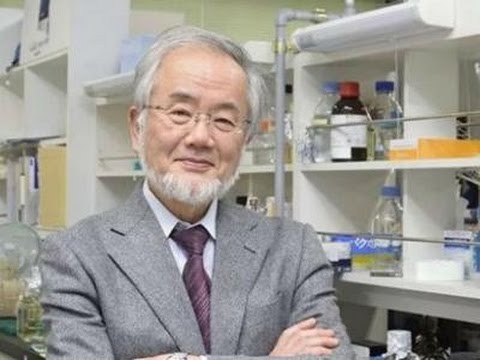By Dane Lorica, | October 04, 2016

Japanese Scientist Yoshinori Ohsumi studied "cell autophagy."
Japanese microbiologist Yoshinori Ohsumi has received the 2016 Nobel Prize for his contributions to the field of physiology and medicine with his cell-autophagy
The 71-year-old scientist studied the mechanism of how cells break down and recycle unwanted components. This is considered as a groundbreaking study that will help in the development of treatment for cancer, Alzheimer's, and other illnesses.
Like Us on Facebook
The professor of Tokyo Institute of Technology used baker's yeast in the identification of genes participating in autophagy.
"He then went on to elucidate underlying mechanisms for autophagy in yeast and showed that similar sophisticated machinery is used in our cells," the Nobel committee said, emphasizing the dearth of information about the mechanism prior to Dr. Oshumi's study.
Autophagy, which literally means "self-eating," was purposely chosen by Dr. Ohsumi to avoid competition. He emphasized that he does not like competition and that the essence of Science is to "do what others aren't doing rather than doing what everyone else in the pack is flocking to."
He stressed that the recycling system in human physiology is extremely important. As an example, he explained that people afloat at sea could survive for weeks because of the body's ability to recycle components like protein. The study also revealed that aging might be associated with the decrease in autophagy.
Dr. Ohsumi is the 25th Japanese recipient of the Nobel Prize and the 4th in the field of medicine. He will be receiving a prize worth ¥95 million ($14 million) during the awarding ceremony on Dec. 10 in Stockholm.
Dr. Oshumi's works were also recognized during the 2015 Canada Gairdner International Award.
-
Use of Coronavirus Pandemic Drones Raises Privacy Concerns: Drones Spread Fear, Local Officials Say

-
Coronavirus Hampers The Delivery Of Lockheed Martin F-35 Stealth Fighters For 2020

-
Instagram Speeds Up Plans to Add Account Memorialization Feature Due to COVID-19 Deaths

-
NASA: Perseverance Plans to Bring 'Mars Rock' to Earth in 2031

-
600 Dead And 3,000 In The Hospital as Iranians Believed Drinking High-Concentrations of Alcohol Can Cure The Coronavirus

-
600 Dead And 3,000 In The Hospital as Iranians Believed Drinking High-Concentrations of Alcohol Can Cure The Coronavirus

-
COVID-19: Doctors, Nurses Use Virtual Reality to Learn New Skills in Treating Coronavirus Patients







